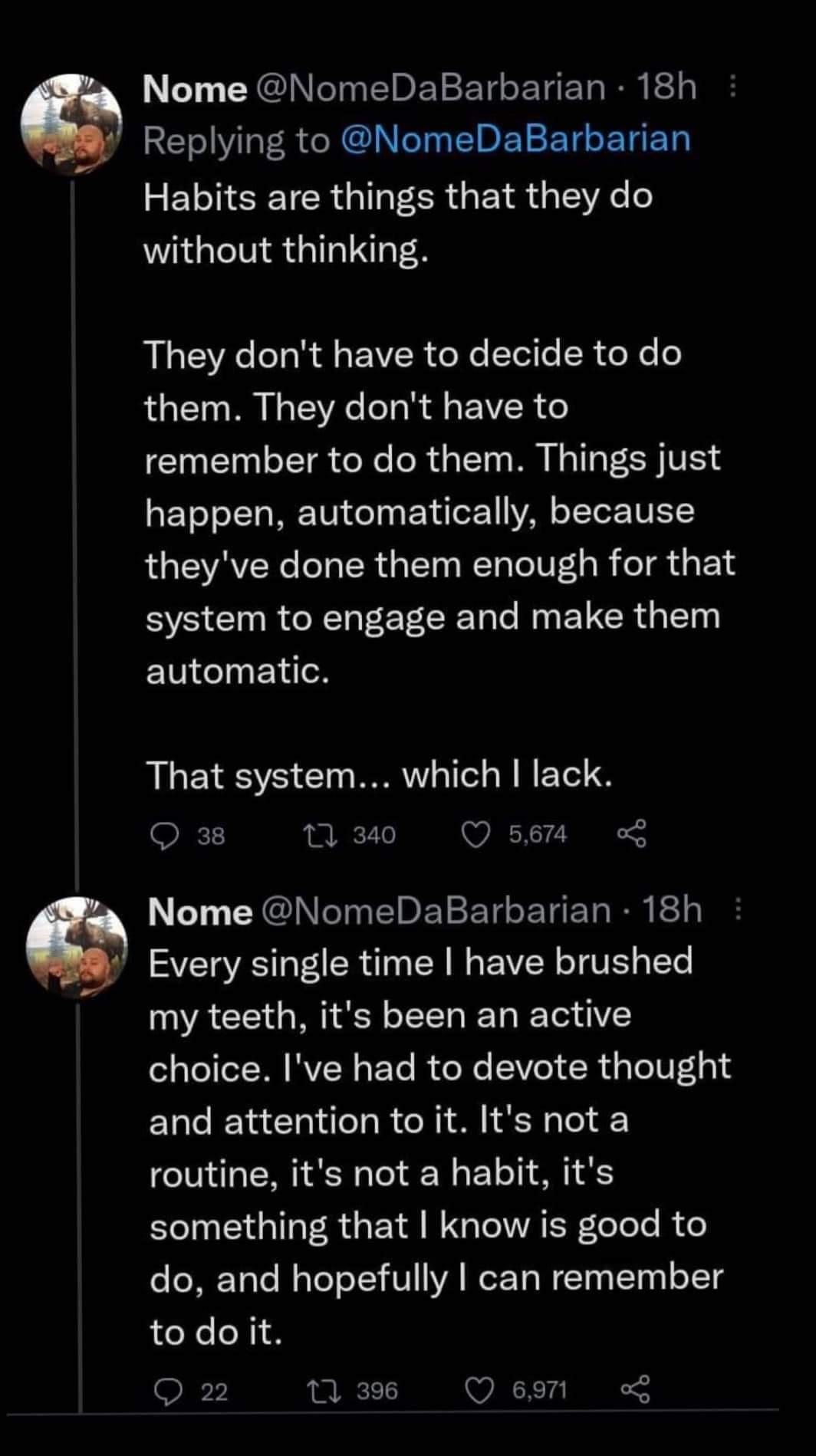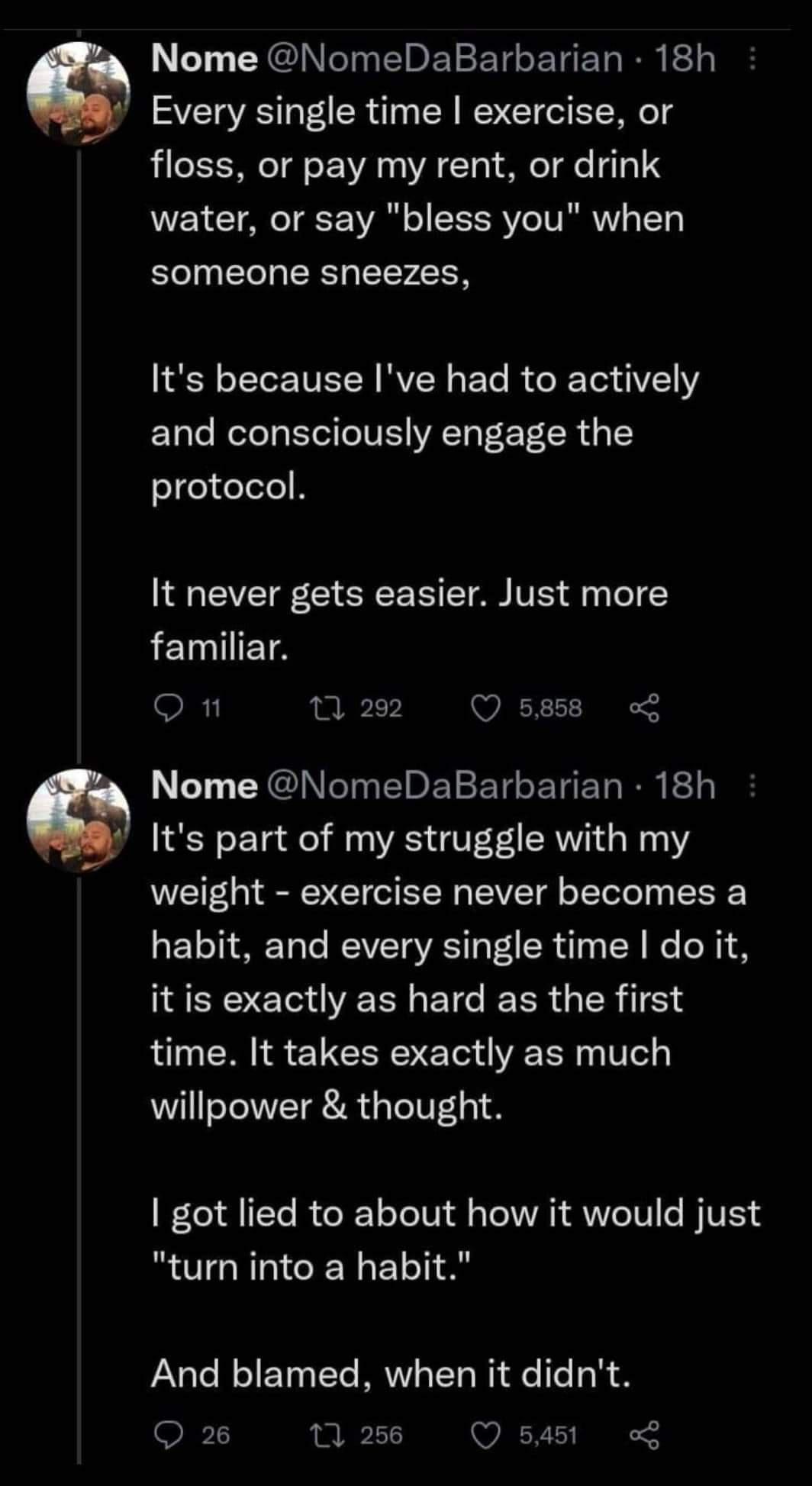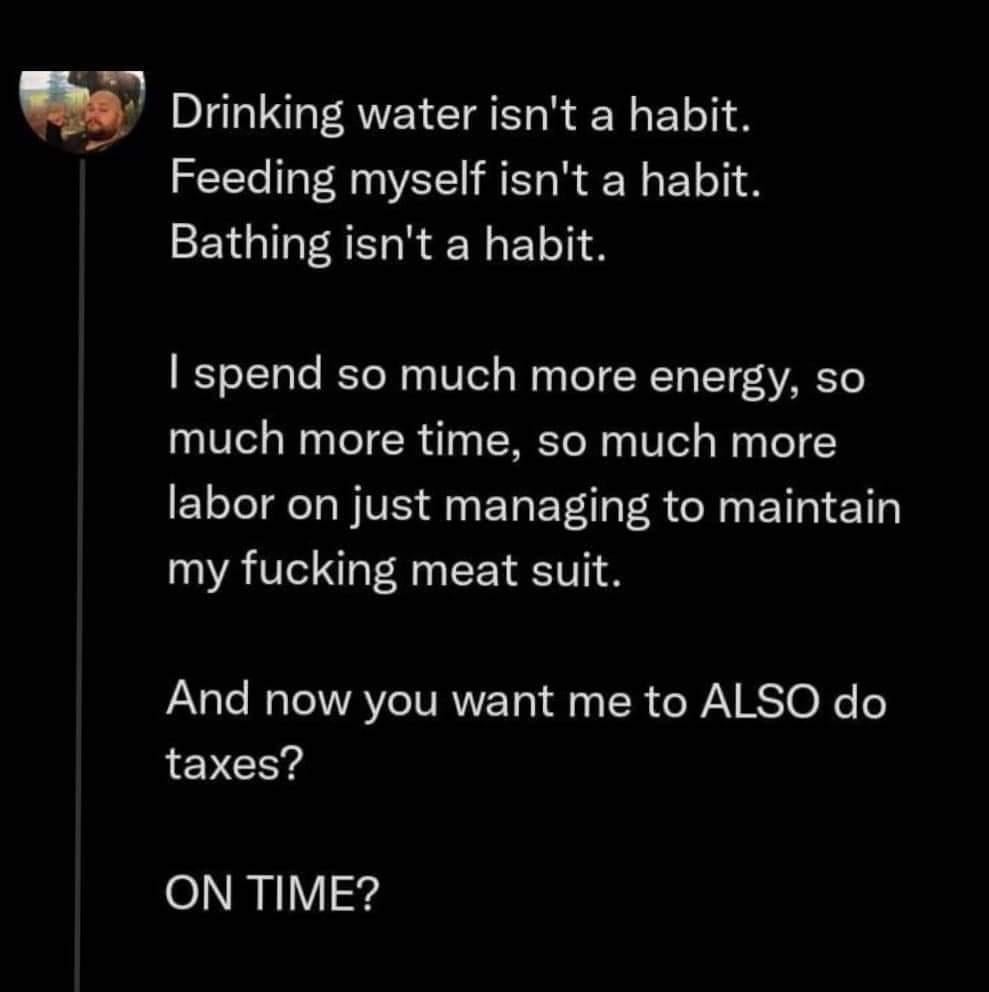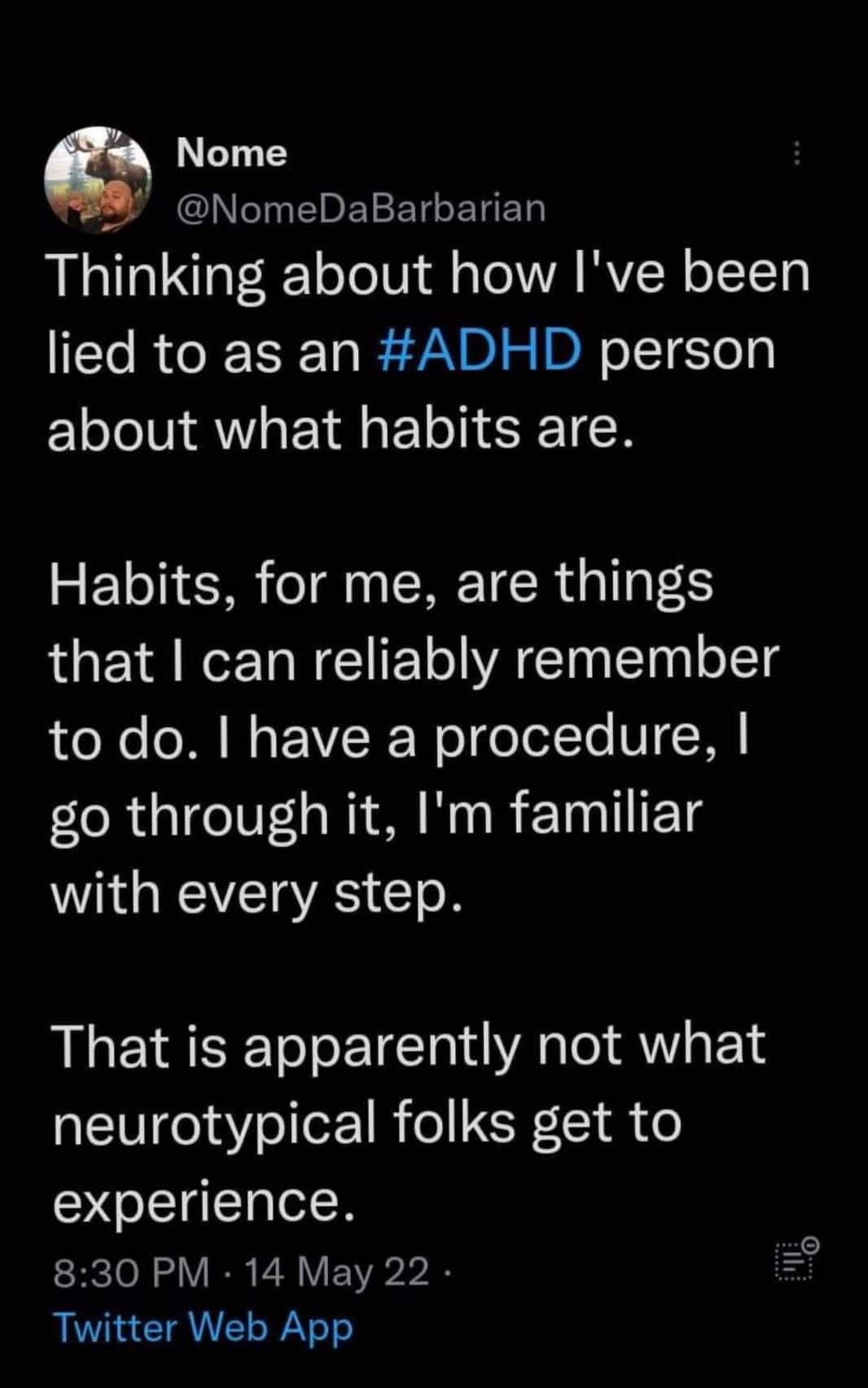Thank you Nome @NomedaBarbarian
For the visually impaired, the images are a series of Twitter screenshots.
Full transcription of text below images.

Full transcription of text below images.

Full transcription of text below images.

Full transcription of text below images.
@NomedaBarbarian on Twitter:
Thinking about how I've been lied to as an #ADHD person about what habits are.
That apparently is not what neurotypical folks get to experience.
Habits are things that they do without thinking.
They don't have to decide to do them. They don't have to remember to do them. Things just happen, automatically, because they've done them enough for that system to engage and make them automatic.
That system...which I lack.
Every single time I have brushed my teeth, it's been an active choice. I've had to devote thought and attention to it. It's not a routine, it's not a habit, it's something that I know is good to do, and hopefully I can remember to do it.
Every single time I exercise, or floss, or pay my rent, or drink water, or say "bless you" when someone sneezes,
It's because I've had to actively and consciously engage the protocol.
It never gets easier.
Just more familiar.
It's part of my struggle with my weight--exercise never becomes a habit, and every single time I do it, it is exactly as hard as the first time. It takes exactly as much willpower & thought.
I got lied to about how it would just "turn into a habit". And blamed, when it didn't.
Drinking water isn't a habit. Feeding myself isn't a habit. Bathing isn't a habit.
I spend so much more energy, so much more time, so much more labor on just managing to maintain my fucking meat suit.
And now you want me to ALSO do taxes?
ON TIME?



